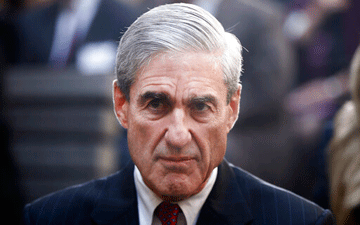
AP Photo/Charles Dharapak
Anita Varma is the program manager for Journalism & Media Ethics as well as Business, Leadership, and Social Sector Ethics at the Markkula Center for Applied Ethics. Views are her own.
On the heels of the Mueller investigation conclusion and Attorney General William Barr’s release of a summary, news media outlets have attracted ire for fanning the flames of suspicion and prompted introspection within the news industry about how they have covered investigations into Russian interference and collusion in the 2016 presidential election. Some have argued that the press was rash in its readiness to try the president in the court of public opinion, and others have remarked that the country needs to move on to focus on the 2020 election. Still others have insisted that the summary of the report is insufficient, and that the full report needs to be released before passing judgment.
Initial coverage regularly quoted President Trump’s tweets as well as Attorney General Barr’s summary. Most news outlets that covered “breaking news” of the Mueller summary included the conclusion that “the Special Counsel states that ‘while this report does not conclude that the President committed a crime, it also does not exonerate him.’”
The ethical question that coverage of the Mueller investigation and report raise is about the ethics of indexing.
Indexing, W. Lance Bennett explained in a prescient 1990 study, “Toward a Theory of Press-State Relations in the United States,” is a routine practice in which news professionals tether their stories to “the range of voices and viewpoints in both news and editorials according to the range of views expressed in mainstream government debate about a given topic” (p. 106). News coverage that relies on indexing state officials predominantly provides an account of “who said what” (p. 116), such that the people in power who are under investigation or conducting investigations get to set the terms of public discourse. Directly at odds with press independence, indexing means that reporters recount authoritative officials’ versions of events instead of critically assessing them.
At first glance, indexing seems both innocuous and ethically defensible, since it equips readers with knowledge they can then choose to use at the ballot box. Yet the ethical problem with indexing arises from the fact that the views being indexed are unlikely to scrutinize the institutions that establish the speakers’ authority – such that readers remain ill-equipped to navigate political decisions. In other words, and to borrow again from Bennett, “the images that flow from indexing are not likely to acknowledge any ills in the system to begin with. Barring the unlikely event of major powerholders criticizing the system that keeps them in power, indexed news stories of even the most investigative and adversarial sort will end with the conclusion that ‘the system works.’” (p. 123).
If, indeed, “the system works,” then that would mean that the U.S. has a procedurally just system. If the procedure is just, then the outcomes will be just. Yet unless officials begin to introspect of their own accord, indexing will not prompt the press to examine whether the U.S. government’s systems and processes are well-aligned with the country’s ideals.
However, Bennett adds, there are also moments of opportunity: with a fracture in consensus about the meaning of events or investigations, “the journalistic process may be relatively more chaotic. With this chaos may come a decline in the familiar ‘official’ narrative structure, opening the way for anomalous news narratives told through disparate social voices” (p. 107). This fracture may be taking hold at the time of this writing, particularly as a rising pitch of demands to see the full Mueller report echo in corridors of power and contradict claims that the matter is done and dusted already.
A fair question is what alternatives to indexing the press has when covering the Mueller investigation, and the state more generally. Presumably, a reporter has few options when covering the government aside from quoting what government officials say. Yet people do not read the news for an unfettered litany of facts. Instead, people seek out narratives to make sense of politics and social life.
With this in mind, Mueller investigation coverage offers a timely reminder that an ethical press is an independent press. In the absence of whistleblowers, information about the state understandably will come from people who work in government, but assessing the meaning of their claims should come from reporters as independent actors who push against uncritically serving as a mouthpiece for the state.
The press can best serve the public by evaluating officials’ claims and asking questions of the political system writ large. Sacrificing press independence in favor of authoritative indexing amounts to the press abdicating its role as a separate “estate” whose purpose is to place a check on power.
Writing about a case from 30 years ago, Bennett explains, in terms potentially applicable today, “Despite considerable hoopla and extensive coverage, the media seemed content to allow the government to investigate itself, assess the importance of the problem, define the solution, and pronounce the denouement of the story. As a result, a scandal with deep institutional roots passed with only minor punishments handed out to minor actors deemed personally responsible for the breakdown” (p. 123-124). Whether we are in the middle of “a scandal with deep institutional roots” remains unclear based on the report’s conclusions, but it is a question that an ethical press should continue to ask – without hasty conclusions or undue deference – for the sake of the electorate it seeks to serve.
Sources
Bennett, W. L. (1990). Toward a theory of press‐state relations in the United States. Journal of communication, 40(2), 103-127.